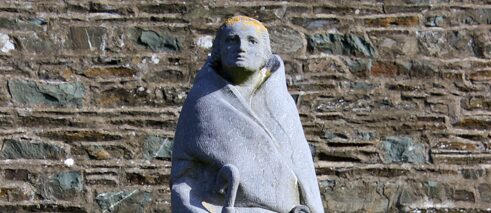Traces in other regions
St Kilian, patron saint of Franconia

Between the sixth and eighth centuries, Irish monks spread Christianity all the way from Iceland to the north of Italy. Among the best-known names is that of St Kilian.
Christianity became established in Ireland after 431, when Pope Celestine I sent Palladius, a missionary bishop, from France; the next missionary came from Britain – St Patrick, Ireland’s patron saint. For the next 100 years or so, Ireland was quite isolated; it never became part of the Roman empire, nor were there any large migrations to or from the island. And so its Church developed independently. Monastic settlements flourished and Ireland became known as the Island of Saints and Scholars. Kilian – also known as Killian or Cillian – was born around 640 in Cloughballybeg, near Mullagh in County Cavan. He was educated in Roscarberry and Touist. In 686 Kilian and eleven followers travelled to Rome, and from there to pagan Würzburg, where he managed to convert Duke Gozbert to Christianity.
He told Gozbert that it was against the Bible’s teachings to marry his brother’s widow. When Gailana, the widow, heard this, she had Kilian and his followers Totnan and Kolonat (Colmán) beheaded. In 752 the first bishop of Würzburg, Burchard, had a cathedral built on the spot where they were executed, and their remains placed in the crypt. The skulls are preserved in a glass case to this day, and on St Kilian’s feast day, 8 July, the relics are paraded through the town and put on display in the cathedral. The annual Kiliani festival also takes place around his feast day. St Kilian is the patron saint of Würzburg, Heilbronn and Kostheim, and of the whole region of Franconia.
Visitor Information:
St Killian’s Heritage Centre
Mullagh
Co. Cavan
IRELAND
+353 (0)46 924 2433
„German Traces in Ireland“ is a project of Goethe-Institut Irland.